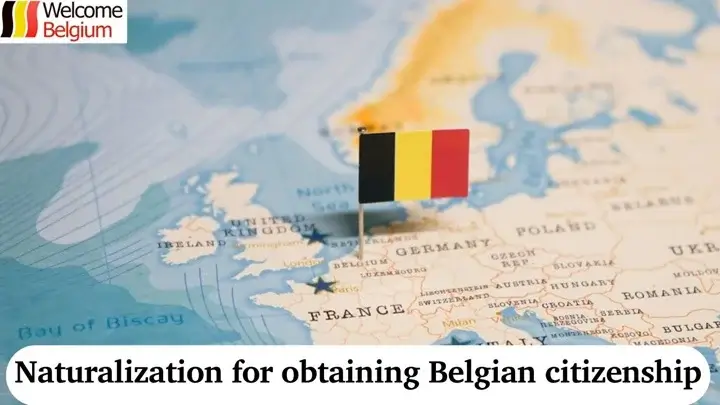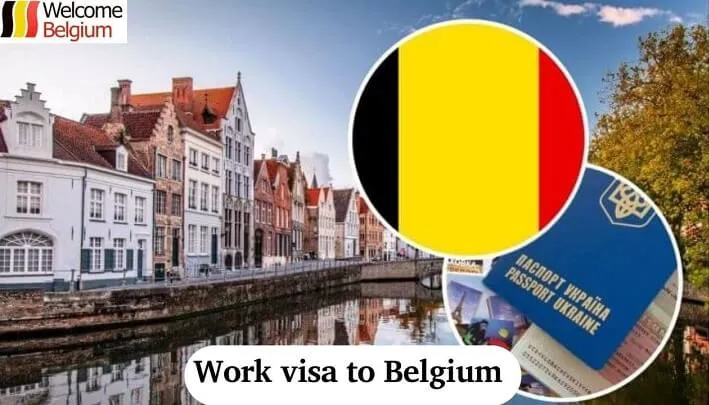Obtaining Belgian citizenship opens up many opportunities for living and working in Europe. The naturalization process involves strict requirements and several stages, from preparing documents to submitting an application. It is important to know what conditions must be met to increase your chances of successfully obtaining citizenship. Let’s look into the details and give practical advice!
Conditions for naturalization in Belgium
Naturalization in Belgium is an important step for those who want to obtain full citizenship rights, including the ability to vote, work without restrictions, and move freely within the EU. This process is suitable for those who have lived in Belgium for a long time, have a residence permit, and want to become part of society. However, to successfully obtain citizenship, it is necessary to fulfill certain conditions, which we will discuss in more detail.
Conditions of naturalization:
- Minimum stay:
- Residence in Belgium for at least 5 years with a permanent residence permit.
- Some categories require a longer period.
- Language proficiency:
- Knowledge of one of the official languages of the country at least at level A2 (French, Dutch or German).
- Economic activity:
- Proof of employment or income for the last three years.
- This could be work, entrepreneurship, or a stable source of income.
- Integration into society:
- Completion of an integration course or evidence of active participation in social life.
- No criminal history:
- A positive opinion from the police and the prosecutor’s office confirming the absence of any violations.
- Preparation of documents:
- The list of documents includes an application, birth certificate, income certificate and integration certificates.
Naturalization in Belgium offers many benefits, such as the right to vote, access to social programs, and the ability to move freely within the EU. However, the process can take considerable time and effort to meet all the requirements. Potential applicants should prepare carefully and evaluate whether the benefits justify the possible costs and complications. Becoming a citizen is a responsible choice that will change your life.
Stateless persons or those who have made special merits to Belgium can undergo the naturalization process under a simplified procedure. For stateless persons, their vulnerable situation is often taken into account, and the process can be accelerated if they meet basic requirements, such as having lived in Belgium for a certain period of time.
Applicants with special merits, such as outstanding scientists, athletes or artists, may apply for citizenship for their significant contribution to the country’s development or its international image. In such cases, achievements, recommendations from reputable organizations and supporting documents are taken into account.
This process helps to uphold humanitarian values and recognise the contribution of individuals to Belgian society.
Important:
The naturalization process in Belgium can take from six months to a year, depending on the region and the workload of the immigration services.
Documents for application
Preparing documents for applying for naturalization in Belgium is a crucial step in the process of obtaining citizenship. The speed and success of the application depends on the correct execution and completeness of the package of documents. It is necessary to take into account the requirements of local legislation and strictly follow the instructions to avoid errors and delays. In this section, we will examine in detail what documents are required and how to obtain them.
Documents and instructions:
- Copy of passport or ID card
- Where to get: from local authorities in the country of residence.
- How to format: a copy of all pages, including blank ones.
- Certificate of registration in Belgium
- Where to get it: at the municipality (administration) at your place of residence.
- How to apply: the document must be current and valid for no more than 6 months.
- Income verification
- Where to get it: from your employer or from the tax office.
- How to apply: provide income certificates for the last 3-5 years.
- Certificate of integration or linguistics
- Where to get it: in language schools or integration centers.
- How to apply: take courses and receive official confirmation.
- Certificate of no criminal record
- Where to get: ask your local police or judicial authorities.
- How to issue: translate into one of the official languages of Belgium and certify.
- Medical insurance
- Where to get: from an insurance company.
- How to apply: provide a copy of your current policy.
- Letter of motivation
- Where to get it: write it yourself.
- How to apply: clearly state the reasons for applying for naturalization.
- Copies of documents on work experience or training
- Where to get it: from your employer, educational institution or tax office.
- How to apply: attach diplomas, contracts and recommendations.
When collecting documents, it is important not only to check their relevance, but also to clarify the requirements in your municipality in advance, as the rules may vary. Make a list and start preparing as early as possible to avoid stress and shortcomings. Do not forget to make copies of all the papers provided for your personal archive. A competent approach to preparation will significantly speed up the application review process.
Tip:
You can request a certificate of no criminal record online, which saves a lot of time.
Steps to apply for naturalization in Belgium
Beginning the naturalization process in Belgium requires careful preparation. It is important to collect all the necessary documents and check whether you meet the requirements. The application is submitted through local municipalities, and the procedure itself can take several months. Let’s look at each stage of the application in more detail.
Steps to apply for naturalization in Belgium:
- Checking compliance with requirements:
- Minimum period of residence (usually 5 years).
- Proficiency in one of the official languages (French, Dutch or German).
- Economic activity (work or regular income).
- Preparation of documents:
- Passport and residence permit.
- Certificate of language proficiency (course or exam certificate).
- Proof of economic activity (contract, tax returns).
- Certificate of good conduct.
- Submitting an application:
- Contact your local municipality (addresses and contacts can be found on www.belgium.be ).
- The application fee varies, usually between 150 and 200 euros.
- Application review:
- The municipality sends your application to the prosecutor’s office and the migration service.
- The review period is 4-6 months, but may increase.
- Result and finalization:
- If approved, you will receive notification of your citizenship status.
- If your application is rejected, you have the right to appeal.
To successfully complete the procedure, it is important to prepare all documents in advance and comply with all requirements. It is recommended to seek advice from a lawyer or immigration consultant to avoid errors when filling out the application. Make sure you understand the steps of the procedure to minimize delays.
Tip:
Knowing several languages makes it much easier to integrate into Belgian society and can speed up the processing of your application.
Review periods
The time it takes to process applications depends on many factors. The average processing time is the estimated period during which the authorities processing the application provide a response or decision.
What influences the increase or decrease of the review period:
- Number of applications. During peak periods (such as before holidays or during mass events), the number of applications may increase significantly, which increases processing time.
- Application type: Complex or non-standard applications require more detailed verification, which increases the processing time.
- Completeness of documents. Incomplete set of documents or need for additional information may delay the process.
- Problems with data processing. Technical or organizational delays in the system may affect the deadlines.
- Priority of the application – Some cases may require more urgent consideration, which will result in a faster decision.
What to do in case of refusal:
- Understand the reasons for refusal. It is important to carefully read the document that sets out the reasons for refusal. This will help you understand which aspects of your application are not satisfactory.
- Correct errors. If the refusal was due to incompleteness or errors in the documents, you can submit a corrected application taking into account all comments.
- Appeal the decision. If the refusal seems unfair or wrong for some reason, you have the opportunity to appeal the decision in the established manner. It is important to meet the deadlines for filing an appeal.
- Submit a new application. If rejected, you can submit a new application, correcting all deficiencies or providing additional documents.
If all requirements are met and the documents are prepared with care, the probability of a positive outcome increases significantly. It is important to remember that the review process may take different amounts of time depending on the circumstances, but with proper preparation and in case of refusal, you can always find the best ways to resolve the situation. By following recommendations and consulting with experts, you can minimize risks and achieve the desired result.
Benefits of Belgian citizenship
Belgian citizenship provides its holders with a number of significant advantages, including access to social benefits, rights and opportunities in one of the most developed countries in Europe. Belgian citizens can enjoy a high standard of living, a stable economy and access to quality healthcare and education. This citizenship is useful for those who want to live and develop in Europe for a long time, as well as for immigrants who want to gain a new status in the social and economic environment.
Benefits of Belgian citizenship:
- Permanent residence permit – Belgian citizens can live and work in the country without restrictions, which is especially beneficial for immigrants.
- Freedom of movement within the EU – as a Belgian citizen, you have the right to move and reside freely within the countries of the European Union.
- Social guarantees and benefits – access to state social programs, including health care, pensions and other social payments.
- The right to vote – Belgian citizens can vote in local and national elections and participate in the political life of the country.
- Education and work – access to quality education and broad employment opportunities within the EU.
- Dual citizenship – Belgium allows you to hold citizenship of another country without requiring you to renounce your previous citizenship.
- High standard of living – Belgium is known for its stable economic situation, high level of safety and good conditions for business.
Despite the many advantages, Belgian citizenship also has some disadvantages. Among them are high taxes and mandatory military service for men. Also, in the case of dual citizenship, there may be difficulties with tax obligations in both countries.







